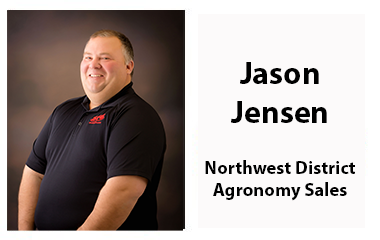Don't Forget Sulfur
Feb 12, 2024

Sulfur is a micronutrient that has had very little attention until recent years. Twenty years ago, yields were less than those of today, and we were getting enough sulfur from the air to take care of our cropping needs. Some scientists say that before sulfur was taken out of many fuel sources, we were getting close to 12 pounds of sulfur/acre with rainfall throughout the year.
Sulfur is taken up in higher amounts as yield increases, which means our crops require more sulfur each year as yields increase. With no sulfur falling in the rainfall, we must now apply sulfur to maximize corn and soybean production. Many scientists will agree that a shortage of sulfur to a plant can be just as yield limiting as nitrogen, phosphorus, or potassium deficiencies.
Sulfur is mobile in the soil profile making it a difficult to test. Soil tests give a general baseline for sulfur in the soil profile, but are not 100% accurate. The most precise test is an early season plant tissue test, leaving dry or foliar options as a sulfur source for that cropping year.
Yellowing of corn and soybeans on the new foliage is a tell-tale sign of sulfur deficiencies. Many people often mistake sulfur deficiencies for nitrogen deficiency. The main difference between the two is nitrogen causes plants to turn yellow from the bottom up and sulfur deficiencies are shown by plants yellowing from the top down. Soybeans show yellow to yellow-striped leaves on new foliage at the top of the plant, giving the entire deficient area a yellow cast as you glance across a field. Soybeans are also slower at fixing nitrogen when sulfur is deficient increasing the yellowing in soybeans.
We have several options at SFG:
- Super Grow is a great source of sulfur containing 80 units/ton but limited supply,
- Sulfur 90% (elemental sulfur),
- Micro sync Pro
- Foliar Sulfur options
- Amidas/Dry AMS